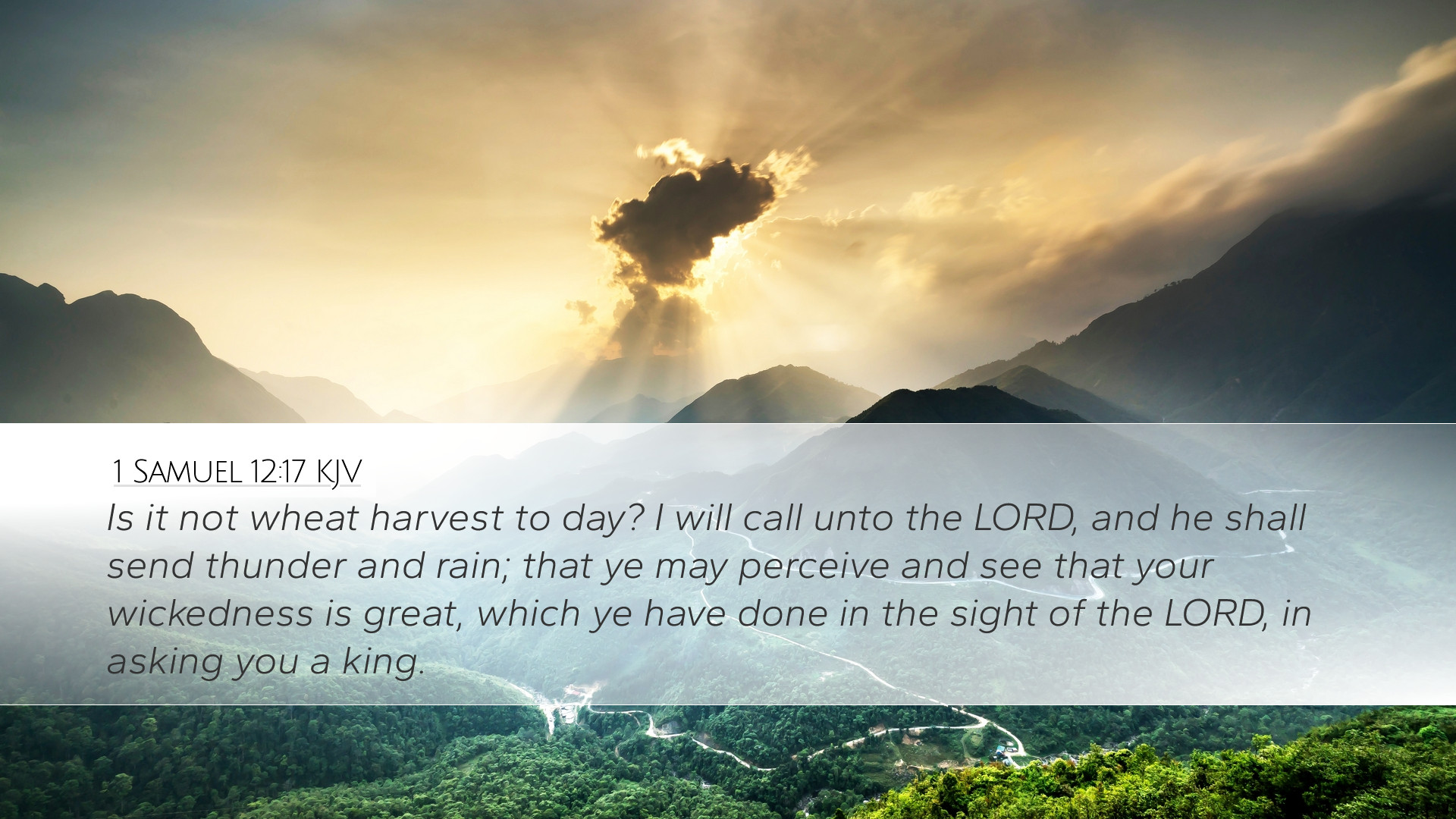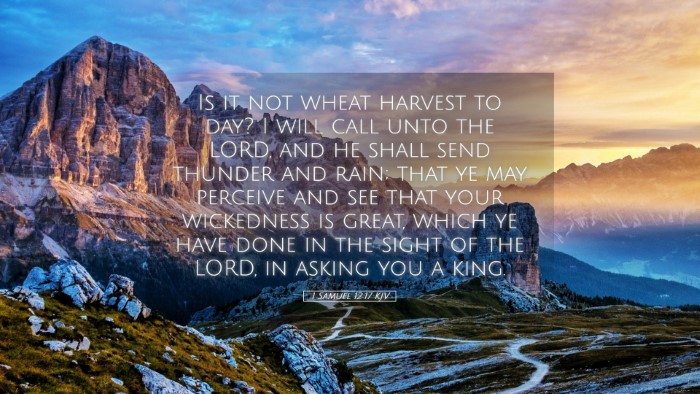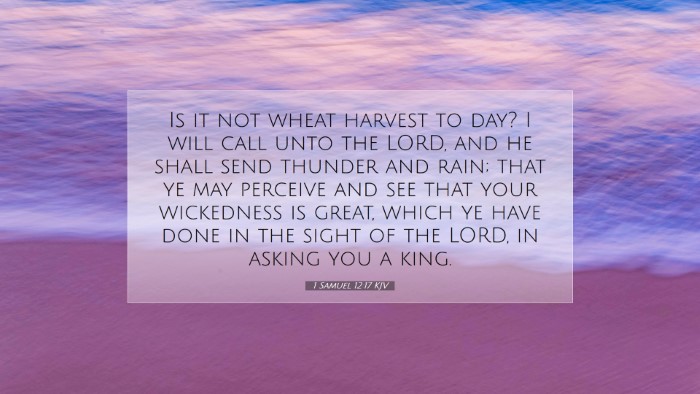Bible Commentary on 1 Samuel 12:17
Text of 1 Samuel 12:17 (KJV): "Is it not wheat harvest today? I will call unto the Lord, and he shall send thunder and rain; that ye may perceive and see that your wickedness is great, which ye have done in the sight of the Lord, in asking you a king."
Introduction
The passage of 1 Samuel 12:17 presents a pivotal moment in Israel's history as Samuel addresses the people regarding their desire for a king and its implications. This commentary draws insights from several public domain sources, particularly those by Matthew Henry, Albert Barnes, and Adam Clarke. It seeks to unpack the theological and historical significance of the text while providing practical applications for pastors, students, theologians, and Bible scholars.
Contextual Background
1 Samuel 12 serves as a bridge between the leadership of Samuel, a prophet and judge, and the new monarchy established under Saul. Samuel is delivering a farewell address, reminding the Israelites of their covenantal obligations to God and the consequences of their decisions. The call for a king, away from God’s direct oversight, poses a significant challenge for the nation.
Historical Context
Matthew Henry emphasizes the historical context, noting that Israel's request for a king was rooted in fear and a desire for conformity with surrounding nations. This reflects a fundamental misunderstanding of their identity as God's chosen people. Samuel's warning is crucial as he points out the ramifications of their choice.
Spiritual Implications
Albert Barnes highlights the spiritual implications of the text. The reference to wheat harvest indicates a time of year when rain is least expected, thus adding significance to Samuel's prophetic declaration. It serves as a divine demonstration of God's power and displeasure over Israel's actions, reinforcing the idea that their request for a king was tantamount to rejecting God.
Theological Insights
Divine Sovereignty and Human Agency
The verse illustrates the tension between divine sovereignty and human agency. Adam Clarke articulates that while God permits human choices, He is not passive. Samuel calls upon God to demonstrate His power in response to the people's sinfulness. This interplay presents essential theological considerations for understanding God's governance over human affairs.
Consequences of Rejection
Samuel's declaration about the people's wickedness provides a sobering reminder of the consequences of turning away from divine guidance. Matthew Henry posits that God's response through thunder and rain serves as a warning, drawing attention to the seriousness of their transgression. This moment functions both as a divine rebuke and a call to repentance.
Practical Applications
For Pastors and Church Leaders
- Emphasizing Faithfulness: Pastors should remind their congregations that faithfulness to God often means choosing His way over societal pressures.
- Clear Prophetic Voice: Like Samuel, church leaders must be willing to confront sin, providing a clear prophetic voice in a culture inclined to compromise.
For Theologians and Scholars
- Exploring Historical Context: Theological discourse should include exploration of Israel's historical context to understand modern implications of leadership and authority.
- Understanding Divine Interaction: Scholars should investigate how God interacts with human decisions and the implications on theology regarding free will and determinism.
Conclusion
1 Samuel 12:17 serves as a profound reminder of the seriousness of Israel's request for a king and the implications of forsaking God’s direct rule. Through the insights of Matthew Henry, Albert Barnes, and Adam Clarke, the passage reveals significant theological truths about God's sovereignty, the nature of sin, and the responsibilities of leadership. For contemporary audiences, this text challenges us to evaluate our allegiances and the nature of our requests before God.


